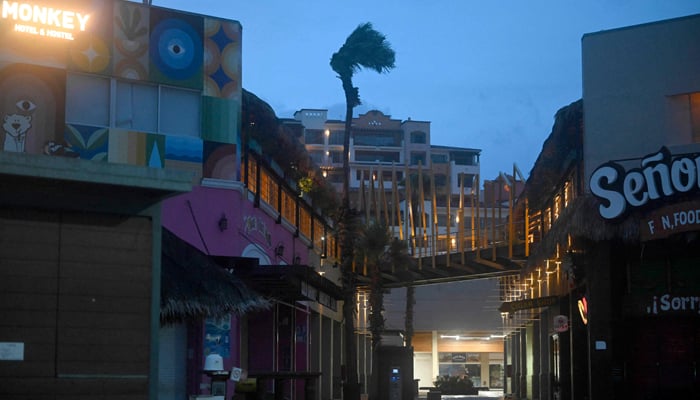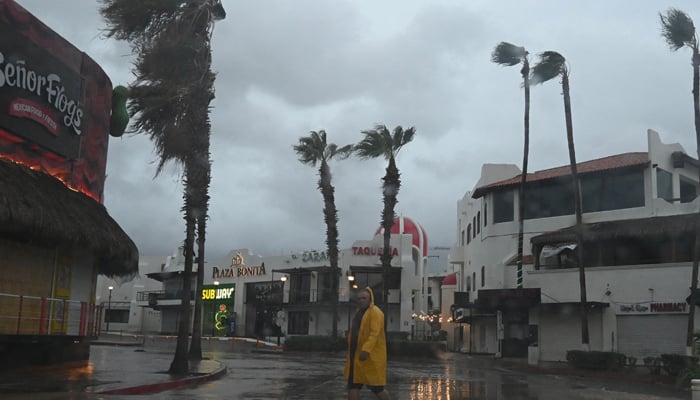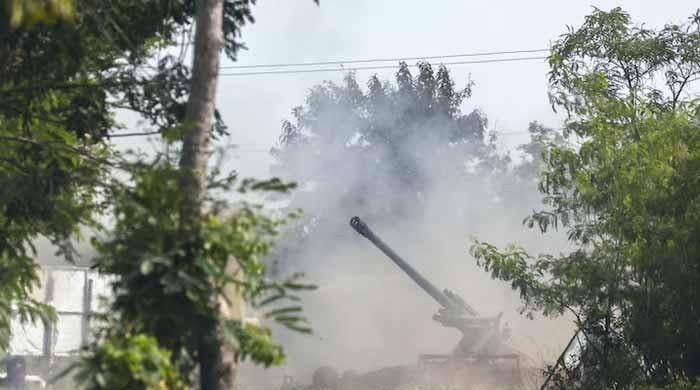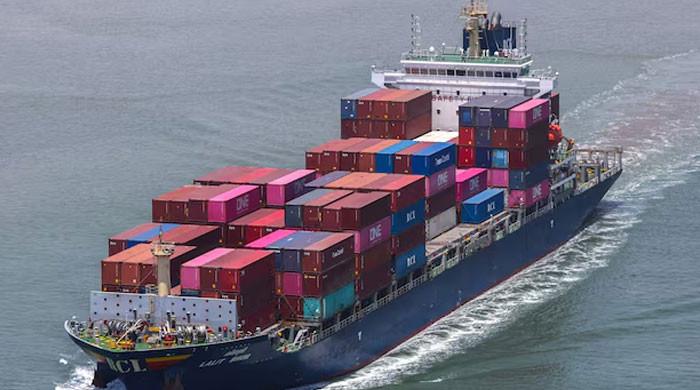Worst in decade: Hilary brings heavy downpours in California, Mexico
"Heavy rains were affecting portions of Baja California and the southwestern US," NHC says
August 20, 2023

A powerful hurricane Hilary — dubbed the worst storm in more than a decade — started to make its presence felt with heavy rains and strong winds in Mexico's Baja California peninsula and the southwestern part of the country Saturday triggering a warning from officials about "deadly and catastrophic flooding.
Nancy Ward, director of the California Governor's Office of Emergency Services, said Hilary could be "one of the worst storms to hit the state in more than a decade".
"Make no mistake," she was quoted as saying by US media. "This is a very, very dangerous and significant storm."
"The storm had weakened Saturday from a powerful Category 4 to Category 2 on the five-step Saffir-Simpson scale — but was still regarded capable of "extensive damage," the US National Hurricane Center (NHC) said.
The officials noted that conditions of hurricane Hilary were likely to persist along the Baja California coast through Sunday morning.
NHC noted: "By Saturday afternoon, Hilary was packing maximum sustained winds of 110 miles per hour (175 kilometers per hour), with higher gusts."
"Heavy rains were affecting portions of Baja California and the southwestern US, with catastrophic and life-threatening flooding likely," it stated.

"The center of Hilary will move close to the west-central coast of the Baja California Peninsula tonight and Sunday morning then move across southern California Sunday afternoon and Sunday night," the center remarked.
Heavy rainfalls and flooding are still possible with the storm expected to weaken to a tropical storm before reaching southern California and southern Nevada.
Dangerous to catastrophic flooding
Residents and workers in the Mexican tourist resort of Cabo San Lucas have put up protective boarding and laid thousands of sandbags as large waves began crashing ashore.
Military personnel were seen patrolling the beach in the city, a popular destination for both Mexican and foreign tourists.
Streets in the town of Todos Santos, on the west coast of the peninsula, were largely deserted Saturday while the beach in nearby Cerritos was closed due to rough waves.
"Last night we felt the wind picking up, it wasn't as strong as we were expecting but it still caused us to worry," said Marco Segura, a 57-year-old worker in Cerritos.
The Mexican government deployed almost 19,000 soldiers in the states most affected by the storm, while the federal electric utility has sent 800 workers and hundreds of vehicles to deal with eventual outages.
"In the US, rainfall amounts of three to six inches, with isolated amounts of 10 inches, are expected across portions of southern California and southern Nevada," the NHC said.
"Dangerous to catastrophic flooding is expected."
The US Federal Emergency Management Agency has deployed teams to areas targeted by Hilary ahead of the storm, and President Joe Biden was receiving regular updates as he prepared to head to Hawaii to survey damage from a devastating wildfire.
"He has encouraged everyone to make sure that they are aware of what this dangerous storm is potentially going to bring and to listen to their local officials on the steps they can take to make sure that they are keeping safe," FEMA chief Deanne Criswell said.
Major League Baseball and Major League Soccer have rescheduled games planned for Sunday in the US region.
Hurricanes hit Mexico every year on both its Pacific and Atlantic coasts. Although their remnants sometimes affect California, it is rare for cyclones to strike the state with tropical storm intensity.
Scientists have warned that storms are becoming more powerful as the world gets warmer with climate change.









